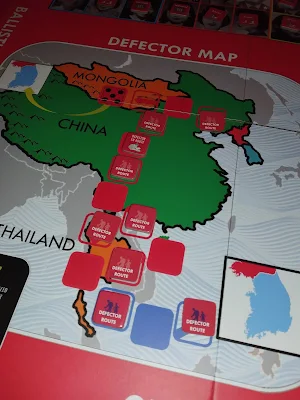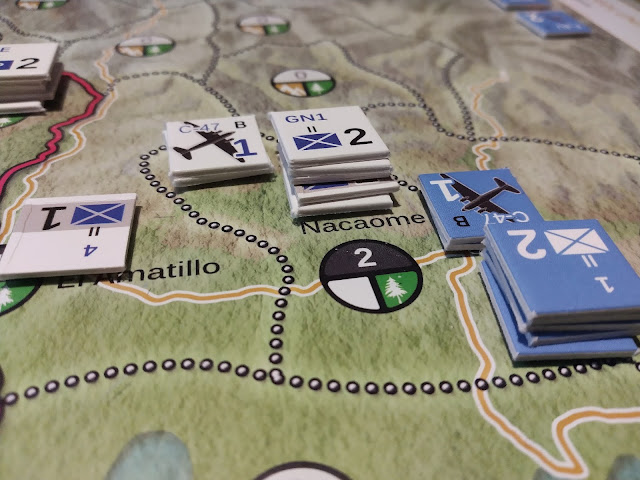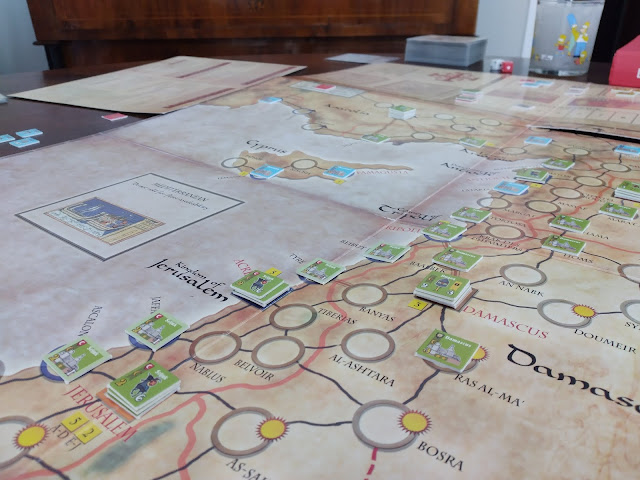No Motherland Without. Soviets plus electricity
North Korean: Laura Beltrami
Western: Alex Isabelle
August 1945
World War II will be over in a few days. Global attention is focused on the incredible moments that accompany the difficult transition to peace. While Europe is divided among the allied forces, Japan, which still refuses to surrender, is hit by the bombing of Hiroshima. Two days later the USSR reopens confrontations in Manchuria, trying to occupy as much Asian territory as possible before the inevitable end of the conflict. The next day Nagasaki is hit. Japan quickly sets out to surrender, while its troops are pushed back from all occupied and colonial territories. Even if on August 15th the Emperor officially announces the surrender, the occupation of the Japanese territories by the Allies continues for a couple of weeks. Among the liberated territories there is also Korea, in the middle of which the Russian and American troops meet, approximately at the latitude of the 38th parallel.
The former Japanese colony, conquered in 1910, sees a rapid ferment of popular initiatives aimed at building a democratic government. These initiatives are discouraged by both occupying forces, who, similarly to what happened in Germany, opt to continue this occupation even when the conflict is over. In the South a puppet government is set up, and the top of it there is Syngman Rhee, former president of the provisional government of the Republic of Korea twenty years earlier, which immediately initiates a ruthless repression of dissent and communist tendencies. In the North, on the other hand, the USSR and China support the birth of various left-wing political groups, a coalition in which leader Kim Il-sung quickly emerges; exiled from Korea the same way as Syngman Rhee was, he's now recognized as a war hero. Mirroring what is happening in the South, Kim's government pursues a series of repressive policies against the nationalist and christian oppositions.
Events unfold quickly. Both north and south of the border there is a desire for a territorial unity that does not find support from the newly formed UN, already paralyzed by the play of force between the US and the USSR. The political opposition between the leaders of South and North Korea results in border tensions, political attacks, and finally in small skirmishes, followed by a full-scale conflict.
The Korean War, the first armed clash between the western and eastern blocs, "ends" three years later with a bleak outcome: the ceasefire leaves the border essentially unchanged after years of inconclusive clashes and one country, or rather two, razed to the ground. Even if a real peace is not reached, it is evident that the two Koreas will live separate destinies for the decades to come: the military stalemate that has been reached appears insurmountable. South of the border, which soon becomes the most militarized in the world, the Koreans will have a difficult relationship with the American "liberators" and their puppet dictators, while North Korea, squeezed between the forces of the Western bloc and the interference of the eastern one, closes itself like a hedgehog, becoming the prison-state we know today.
 |
| Between propaganda and extreme economic choices, the North actually manages to keep the state running. |
August 1953
Thus begins, after this long introduction, the story of the Workers' Paradise, which is what interests us who are playing No Motherland Without.
Wounded by the inconclusive results of the Korean War, China allows itself to be persuaded by the Americans, in the person of a young Henry Kissinger, to disengage for a while from his support for Kim's Korea, who immediately realizes that the key to success of its own dictatorship will be the constitution of an economically independent country. He spends all the resources of the state in the construction of a huge dam aimed at closing the mouth of the Taedong River, so as to increase the arable area of the country. Naturally, it also closes the borders of the state, preventing its citizens from leaving the country, but the Koreans do not want to let themselves be treated like animals in a cage: the Mongolian route is therefore inaugurated: it consists in trying to achieve freedom by passing through the Gobi desert. Of the first deserters, who will all attempt the way of the desert together, no one will be saved.
 |
| To deal with the crisis, first of all, the rations are reduced. |
In Korea they do not allow themselves to be intimidated and, to discourage any fugitives, they enact the law of the punishment of the three generations, that is to say that for every political dissident imprisoned, a relative of his / her in the generation before and in the next will also be arrested. This does nothing to increase the quality of life, which is not particularly affected by the energy independence achieved by the country: in 1955 North Korean plunges itself into a terrifying famine that causes popular support for the Party to collapse. Kim's government hangs in the balance.
It is cinema that revives North Koreans' sense of nationalism: the distribution of the mastodontic tragedy entitled Sea of Blood, in which historical revisionism is elevated to an art, unifies the spirit of the nation, making its dictatorial policies extremely more efficient for several years. However, this is not of any help to the economy: the Democratic People's Republic of Korea is in perpetual crisis, declaring one "buffer year" after another in an attempt to buy extra time to achieve the goals set out in the multiannual plans. A lot of infrastructures are developed, but people are afraid and keep on fleeing the country en masse, following a much more expensive but safer route which involves arriving in China and from there descending to Indochina, showing up in Western embassies so to be sent to South Korea. Students in particular understand that there is no future in the North and try this path. Most succeed.
Years pass, and the Olympic Games are organized in Seoul. The will of the Party would be to sabotage them but the Soviet Union, led in this moment by Brezhnev, intervenes, economically and politically supporting the organization of a joint event between the two Koreas. While people cheer for these peace policies Kim purges half of his board, placing people who are better able to keep deserters at bay at the top of the Party. Just to underline the isolationism of the country, North Korea also outlaws all radio transmissions not managed directly by the state, a fact that in any case greatly helps the spread of anti-government ideas.
 |
| There is no lack of those who let themselves be screwed by propaganda, like this Lim Su-kyung, who after fleeing to South Korea also finds the desire to change his mind and go back home. |
After the Olympics, economic support from the Soviet Union also ends, and the country literally goes into short circuit. One after the other all the regions face a blackout that lasts for days, weeks, months, and even reaches Pyongyang. To silence the rumors that the North Korean people are freezing to death without electricity, the Party has a fictional village built near the border with South Korea, Kijong-dong, the "village of peace", in record time. It, constantly illuminated by generators, is a real showcase that for some time manages to deceive international observers, giving Kim Il-sung time to restart the country. The energy crisis, however, is too serious and there is no way of quickly resolve the very serious humanitarian crisis that is taking place in the countryside.
If the Party's authority at this juncture does not definitively collapse, it is due to the intuition of the Foreign Ministry to, in conjunction with the dissolution of the Soviet Union, espouse the cause of the Non-Aligned Movement. Membership of this international political group is read by all as a sign of progress, and raises the prestige of a state that was about to yield to anarchy. Another fact that is perceived as a sign of progress is the death of Kim Il-sung.
Even if the world expects that in a short time North Korea will go through a path of dissolution of its political project, having lost the guiding spirit of the Great Leader, the power passes directly into the hands of the son of the previous dictator, Kim Jong-il, which after a few weeks makes it clear that he wants to cement the power of the Kims over Korea, starting a series of purges in the previous generation of politicians. And to tell the truth, Kim Jong-il's policies turn out to be curiously progressive: a woman even appears in the government, in a desperate attempt to contain the mass desertion of women themselves, some of whom even escape from prison camps, somehow, to then attempt to escape to China.
 |
| Bush drives north korea to starvation |
The deserters crisis must be stopped and therefore Kim manages to make repatriation agreements with China. Through them the arrests are simplified and the Mongolian section is completely closed, forcing the fugitives to take the long road towards Indochina. This is perceived as a new humanitarian crisis in the making; this attracts the attention of a luminary of international politics, none other than George W. Bush, who, unable to stand idly by while enemy countries treat their citizens badly, decides to drastically cut food support for North Korea. The poor coordination with the rest of the West and the terrible price in human lives that this entails leads the global opinion, incredibly, to support Kim's dictatorship. This looks like an own goal for the West; it is not the case, though, because this cut will have extremely serious effects on North Korea's internal politics, which will give even more power to deserters and political dissidents on the long run.
Kim understands that his country is falling apart and that therefore a deterrence system is needed for Western states that should try to interfere with his governement's stability. He therefore begins to develop the country's missile program as quickly as he can, while at the same time strengthening the state infrastructure as much as possible, also thanks to the help of the Russians, who invest in the factories of Rason, a village located on the border between Korea and Russia, which becomes a regular meeting point between Korean diplomats and those of the Kremlin.
 |
| The long road of defectors to South Korea. |
The news that North Korea is investing in ICBMs is not taken lightly. In the South, recently emerging from the long period of dictatorship, the film Mayumi reminds people of the tragedy that was the attack on the Korean Air 858, in which over 100 people lost their lives. The film also has enormous resonance abroad and helps undermine the stability of Kim Jong-il's government. A lot of capital is therefore invested in a campaign of demonization of North Korea which, however, does not produce particular results. So Kim does not worry about this and jails mountains of dissidents. In the end, it is he who definitively shifts global opinion in favor of the West: a missile launch is successful and enormously scares foreign countries; the prestige of his dictatorship, however, is safe.
Kim Jong-il dies unexpectedly, leaving the "kingdom" to his son Kim Jong-un, who continues his father's policies by not retracting in the least the will to use ICBMs as a deterrent tool. This effectively paralyzes the Western states, which merely start supporting a mass flight of North Korean citizens.
The mass of deserters is a flood that seriously risks becoming a hemorrhage, a movement capable of sending an entire country upside down. Faced with this, Thailand does not want to make decisions that could lead to a dangerous destabilization of the region: when the terms of the Korean War armistice formally expire, the Thai government orders to close the border to North Korean fugitives, stopping to consider them refugees and forcing them to further lengthen the route to South Korea. This slows down the flight of the deserters, and gradually blocks it.
 |
| By now all Koreans are corrupt, jailed, fugitive or dead. |
This is how we arrive to the present day. Kim Jong-un's government is curiously strong; he enjoys the prestige he needs in order not to collapse due to an internal coup d'état, and has managed to put a stop to the exodus of deserters. The country's infrastructure was enormously developed by the father of the current dictator, who actually managed to solve the problem of the chronic backwardness of the countryside. North Korea, despite an international opinion that does not support it, and although it does not appear at a glance particularly solid from an economic point of view, sees its status quo inviolable and inviolable. In short, the soviets plus electricity make Communism, and the Workers' Paradise shines with both. Long live the president.
Do you want to read other stories? Click here for the full list.









Comments
Post a Comment